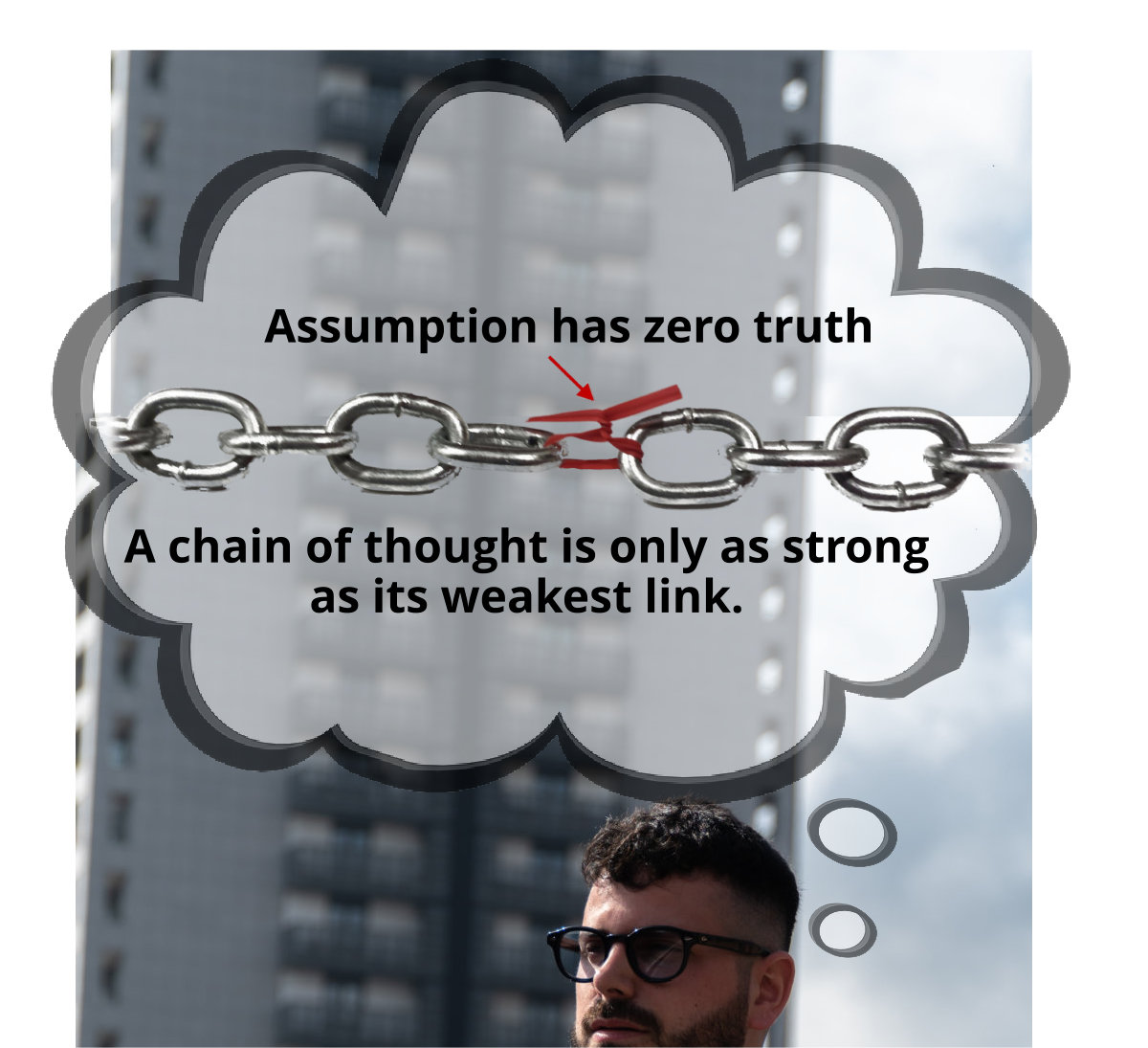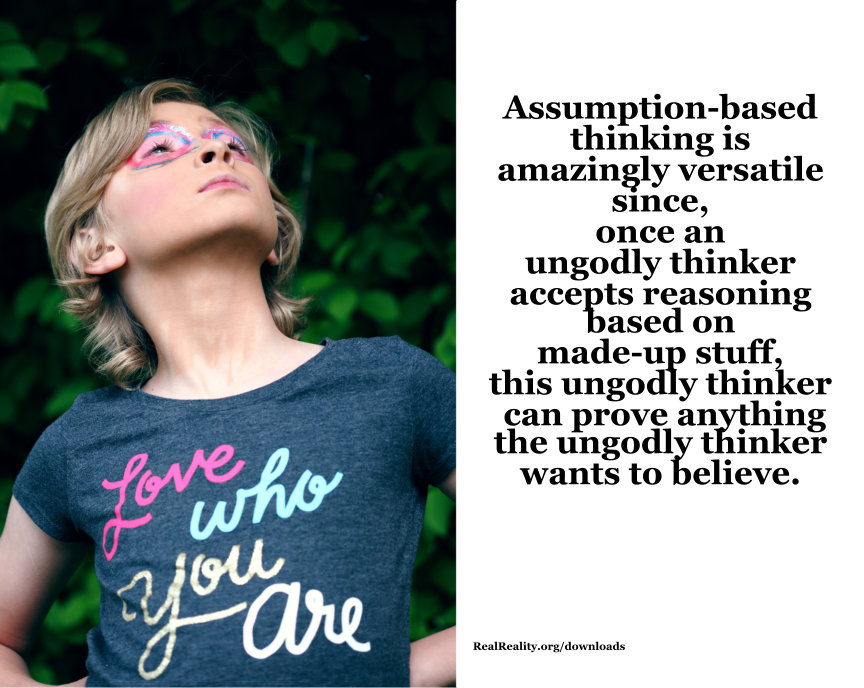
(quote from RealReality.org/Real_Faith_and_Reason_Vol_2_-_Scientia.pdf)
More Complex than Assumption Based On Experience
Based on what we’ve just seen, we realize what’s happening here is more complex than just assumptions based on previous experiences. Bill Nye thinks his assumptions aren’t arbitrary, but all assumptions are arbitrary. He bases these assumptions on his arbitrary worldview. Why are worldviews arbitrary? All worldviews go beyond experience, observation, and divine revelation. Powerful social forces press for conformity in assumptions. This coercion from peer pressure makes Bill’s assumptions even more deceptive. Those pressing for conformity shun, exclude, or punish those who don’t conform. Those in control find ways to hurt anyone who doesn’t conform. Those who don’t conform lose money and opportunity. Then the fallacy of groupthink enters. It gives the illusion the assumptions have substance.
(end quote)









